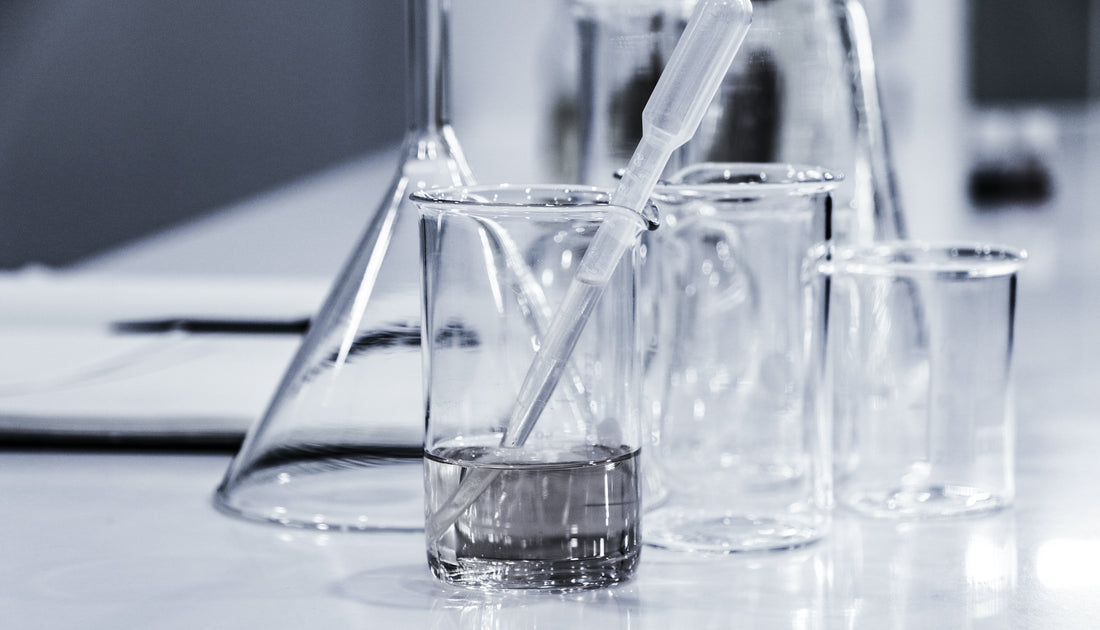
Is alcohol in cosmetic products bad for your skin?
Ever wondered why there is alcohol on the ingredient list of certain cosmetic products? Does alcohol in cosmetics have a negative impact on your skin or hair or is this just another myth? Read on to find out more about these and other questions!
What is alcohol?
Alcohols are chemical compounds with a molecular structure characterized by the presence of a minimum of one hydroxyl group (-OH).Why is alcohol used in cosmetic products?
Alcohols have various functions in cosmetic formulations. They are used in cosmetic products as:- Solvents to dissolve active agents and other ingredients of the cosmetic.
- Emulsifiers to enable the creation of an emulsion and ensure its stability, guaranteeing the right consistency of the cosmetic.
- Emollients to moisturize and soften the skin, soothe irritation.
- Fragrances to give cosmetics a desirable scent.
- Preservatives to extend the durability of the cosmetic, inhibit the growth of microorganisms.
- Absorption promoters to facilitate the penetration of other substances (including active ingredients) from the cosmetic into the skin.
Is alcohol a harmful ingredient in cosmetic products?
Alcohols used in cosmetics can be divided into those with positive and negative effects on the skin and hair. To simplify it, we will call them “good” and “bad” alcohols."Good" alcohols are either beneficial or neutral for the skin or scalp. They don’t have any drying or irritating effect and can be used even on sensitive or atopic skin. “Good” alcohols show properties supporting skin condition or are indifferent to it.
So if you find these alcohols on the ingredient list of any cosmetic product, there is no need to worry about it being harmful for your skin:
-
Cetyl Alcohol, which is an emulsifier that enables the formation of an emulsion and stabilizes it.
-
Cetearyl Alcohol is an emulsifier and emollient. It softens and smoothes the skin.
-
Stearyl Alcohol is also an emulsifier and emollient. It does moisturize and soften the skin.
-
Glycerin moisturizes and supports the regeneration of the epidermis. It facilitates the transport of active substances from cosmetics through the stratum corneum and improves the cosmetic's consistency and durability.
-
Benzyl Alcohol is neutral to the skin. In cosmetics, it has a fragrance and preservative function. Additionally, it regulates the consistency of the cosmetic.
-
Phenethyl Alcohol is neutral to the skin. It is used as a fragrance or preservative.
-
Cinnamyl Alcohol, Menthol, Amycinnamyl Alcohol, Anise Alcohol are fragrances. They are neutral, but in some cases can cause an allergic reaction.
Stay away from products, where you find one or more of these alcohols on the ingredient list:
-
Ethanol (Alcohol, Ethyl alcohol) is used mainly as a solvent in cosmetics. It dehydrates the skin and disturbs its microflora. It is often used in acne-prone skincare products due to its drying and antibacterial properties. However, using it on acne prone skin does more harm than good. It causes excessive drying of the skin, which reacts with increased sebum production and exacerbation of acne. In addition, it disrupts the healthy skin microflora, which leads to the multiplication of bacteria responsible for the formation of blemishes and acne aggravation.
-
Alcohol Denat is an intentionally denatured ethyl alcohol. In addition to the drying and irritating effect, it also has skin sensitizing properties. It’s very harsh for the skin!
- Isopropyl Alcohol is used as a solvent, preservative and anti-foaming agent. It is irritating and highly allergenic to the skin!
To sum up, ethyl and isopropyl alcohol destroy the skin barrier and disturb its microbiome. They lead to skin dryness, redness, irritations and skin hypersensitivity.
Alcohols in cosmetics perform various functions, and although they belong to one chemical group, it is worth remembering that they can have different effects on the skin. Not all alcohols are harmful to the skin. On the contrary, many of them have a positive impact and are desirable in the cosmetic formula. To maintain the health of the skin and its proper hydration level, search for “good” alcohols on the cosmetic’s ingredient list and avoid “bad” ones.